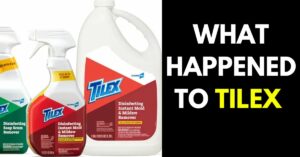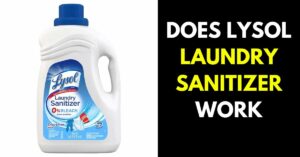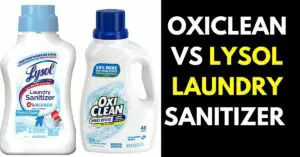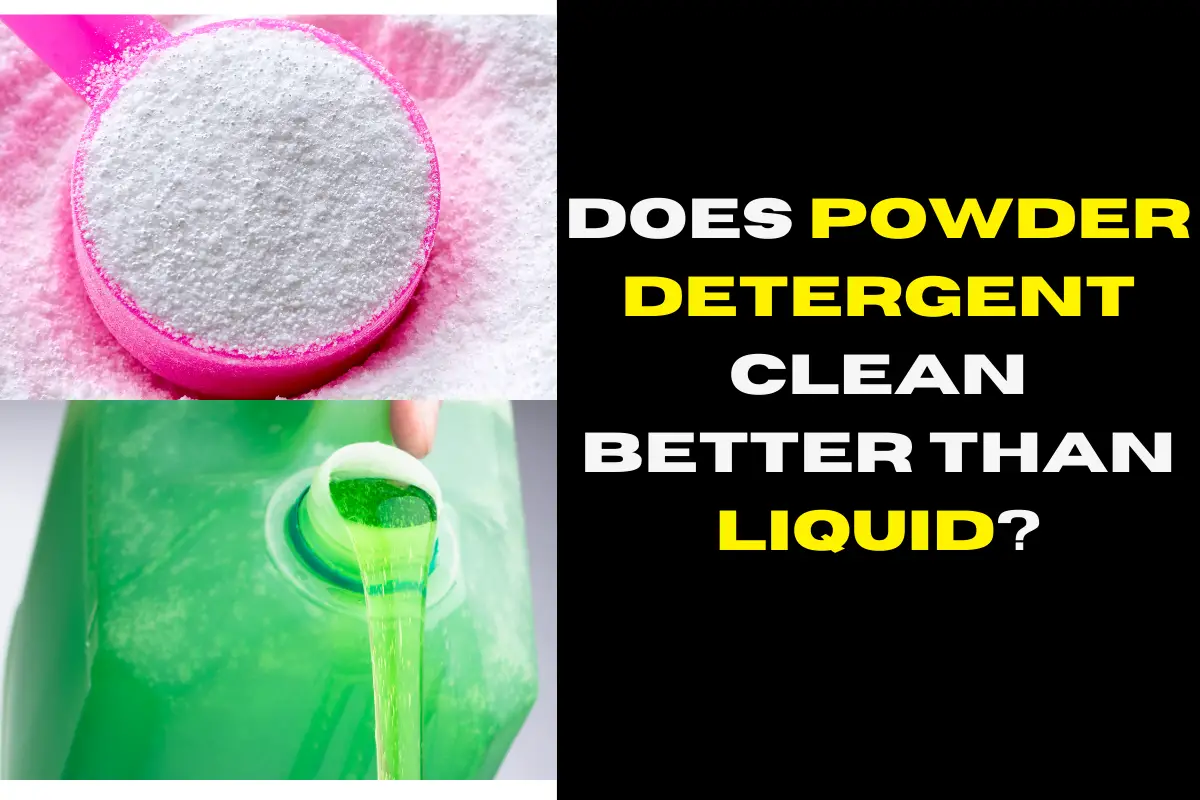
The world of laundry is more complex than most people would initially consider. With a wide range of fabrics, stains, and washing machines, finding the right detergent for your laundry can seem a bit confusing.
Among the numerous choices available on supermarket shelves, the biggest divide lies between liquid and powder detergent. But which one really gets your clothes cleaner?
Powder detergents are better for heavily soiled, durable fabrics and high-temperature washes, while liquid detergents are more suitable for colored, delicate fabrics and cold washes due to their ability to dissolve well in lower temperatures and not leave a residue.
Powder vs Liquid Detergent: Major Differences
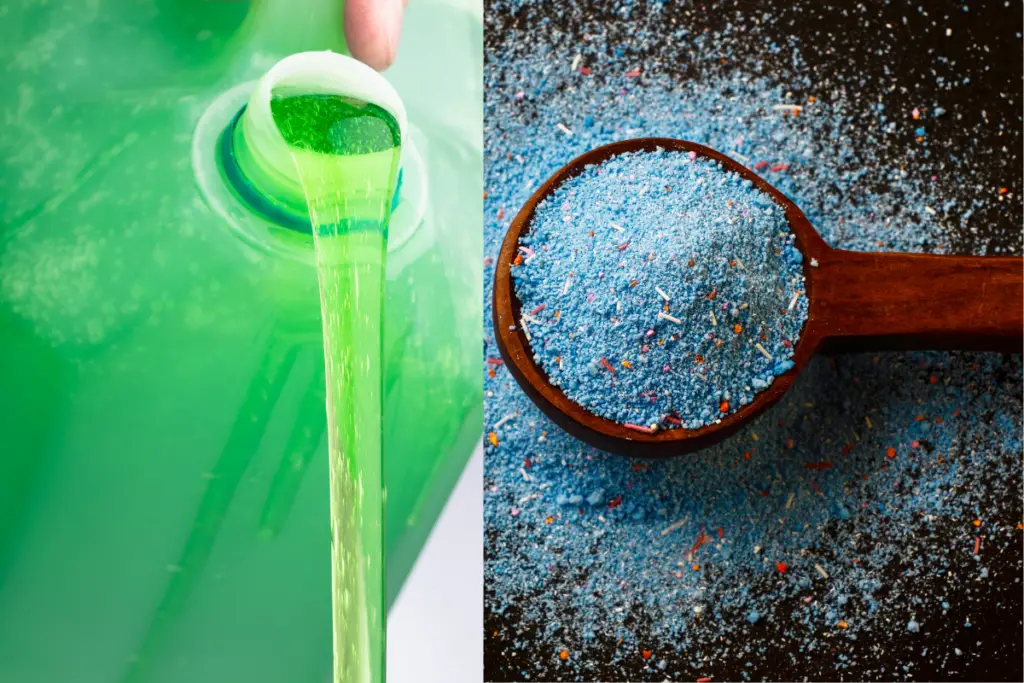
| Powder Detergent | Liquid Detergent | |
|---|---|---|
| Form | Dry, granular substance | Viscous liquid |
| Best for | Heavy soil, durable fabrics, high-temperature washes | Colored, delicate fabrics, cold washes |
| Dissolving ability | Can struggle to dissolve in cold water, potentially leaving residue | Dissolves well in all water temperatures, no residue |
| Cost | Generally cheaper per load | Typically more expensive per load |
| Storage | Longer shelf life, less prone to degradation | Can degrade over time, especially if exposed to extreme temperatures |
| Environmental impact | Usually packaged in cardboard, which is easier to recycle. However, may include water softeners that aren’t as eco-friendly | Often comes in plastic packaging, contributing to plastic waste. However, some brands are moving towards biodegradable packaging |
| Pre-treatment | Not ideal for pre-treating stains directly | Excellent for pre-treating stains directly on fabric |
| Effect on fabrics | Can be harsher on delicate fabrics and bright colors | Generally gentler on delicate fabrics and maintains colors better |
| Usage | Best used in washing machines | Versatile – can be used in washing machines and for hand-washing |
5 Drawbacks of Using Liquid Detergent
As a frequent user of liquid detergent, I’ve noticed a few drawbacks that might influence one’s decision to choose it over powdered detergent.
1. Overuse tendency
One of my biggest challenges is the tendency to overuse the detergent. The liquid form makes it difficult to gauge just how much is enough, often leading to overpouring.
Not only is this wasteful, but it can also be less effective, as too much detergent can create excessive suds, reducing the washing machine’s cleaning power.
2. Less shelf life
I have experience that liquid detergents don’t last as long on the shelf as their powder counterparts. They can degrade over time, especially when exposed to extreme temperatures.
3. Higher price
From a budget perspective, I find that liquid detergents are generally more expensive than powder detergents. Considering the tendency to overuse, it ends up being a costlier choice.
4. Environmental impact
Another downside I’ve come across is that liquid detergents are often packaged in plastic. Even though some brands are moving towards biodegradable packaging, plastic containers are still common, contributing to plastic waste.
5. Weight and convenience
Liquid detergents tend to be heavier and more difficult to lug around compared to powdered ones. This might not be a major issue for everyone, but I’ve noticed it when shopping or refilling my laundry supplies.
5 Drawbacks of Powder Detergent
I have found a few drawbacks to using powder detergent that might be worth considering:
1. Difficulty in dissolving
One of the most noticeable issues with powder detergent is its inability to dissolve completely, especially in cold water. This has sometimes resulted in residue on my clothes after washing.
2. Potential residue on clothes
Speaking of residues, this can be a real concern if you wash cold or have a less powerful washing machine. The undissolved particles can leave white spots on darker fabrics, which can be a hassle to remove.
3. Not ideal for delicate fabrics
When I wash my delicate fabrics, I tend to avoid using powder detergent as it can be a bit harsh, potentially causing damage over time.
4. Messiness
Powder detergent can be a bit messy to handle. I’ve often found detergent dust around my laundry area, which requires extra clean-up.
5. Inconvenient for pre-treatment
It’s not easy to pre-treat stains directly using powder detergent, a situation where liquid detergent is more convenient.
6. Environmental concerns
While powder detergent packaging is often more recyclable, the detergents themselves can sometimes contain water softeners that aren’t as eco-friendly.
Best Practices for Using Powder and Liquid Detergents Effectively
1. Read the instructions
Always follow the instructions given on the detergent packaging. They provide the recommended amount of detergent per load, and this can vary between brands and machine types.
2. Measure correctly
For liquid detergent, it’s easy to overuse if you’re not careful. Use the cap or included measuring tool to ensure you use the right amount. For powder detergent, use the scoop that often comes with the packaging.
3. Sort your laundry
It’s best to sort your laundry by color, fabric type, and soil level. Different fabrics and stains may require different amounts or types of detergent.
4. Pre-treat stains
Liquid detergents are particularly useful for pre-treating stains. You can apply a small amount of liquid detergent directly to the stain before washing.
5. Water temperature
Powder detergent is particularly effective at high temperatures, so it’s a good choice for white or heavily soiled clothes. Liquid detergent is better for colder washes because it dissolves more easily.
6. Perfect detergent dispenser
Ensure to place the detergent in the correct compartment in your washing machine. For powder detergent, use the specific drawer or compartment, if available. For liquid detergent, some machines have a special liquid detergent tray.
7. Store adequately
Keep your detergents in a cool, dry place, and make sure to seal the package properly after use. This is especially important for powder detergent to prevent it from absorbing moisture and clumping together.
Frequently Asked Questions
Does powder detergent work the same as liquid?
They do not work the same due to differences in their formulation, dissolution properties, and effectiveness on different types of stains and fabrics.
Does powdered detergent clog pipes?
The improper use of powdered detergent can clog pipes if it’s not fully dissolved before being flushed through the drainage system.
Summary
Both powder and liquid detergents have their strengths and drawbacks. Powder detergent is cost-effective and great for hard water and heavy stains but may not dissolve well in cold water.
Liquid detergent dissolves well at all temperatures and can pre-treat stains, but it’s typically more expensive and easier to overuse. The best choice depends on your specific laundry needs, washing machine specifications, and budget.

